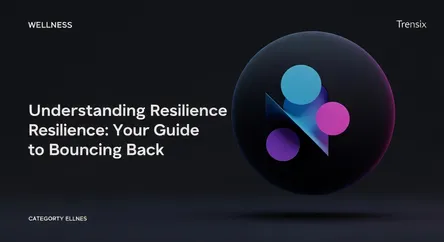Wellness
Understanding Resilience: Your Guide to Bouncing Back

Discover what psychological resilience means, why it's a vital skill in today's world, and how it empowers people to navigate life's challenges.
What is it?
Psychological resilience is the ability to adapt well and bounce back from adversity, trauma, tragedy, or significant stress. According to the American Psychological Association, it's a process of adjusting to difficult experiences through mental, emotional, and behavioral flexibility. It is not about avoiding hardship or distress, but rather working through emotional pain and suffering to recover. Rather than a fixed trait, resilience is a dynamic process and a skill that can be learned and developed over time through specific strategies, self-awareness, and support from others.
Why is it trending?
The focus on resilience has grown alongside a greater global awareness of mental health and well-being. The complexities and constant changes of the modern world, amplified by events like the global pandemic, have underscored the need for mental fortitude. As people seek proactive ways to protect their mental health, resilience is recognized as a key factor that helps individuals cope with uncertainty and stress. The popularization of wellness and mindfulness practices also contributes to its trend status, presenting resilience as a buildable skill for a healthier mind.
How does it affect people?
Resilience provides the psychological strength to cope with life's challenges without falling apart. Resilient individuals are better equipped to manage stress, which can offset the effects of anxiety and depression. Instead of turning to unhealthy coping mechanisms, they can face difficulties head-on, often leading to personal growth and emerging stronger from the experience. This ability to navigate hardship effectively empowers people to maintain a more positive outlook, find meaning in challenges, and sustain their overall well-being and life satisfaction.